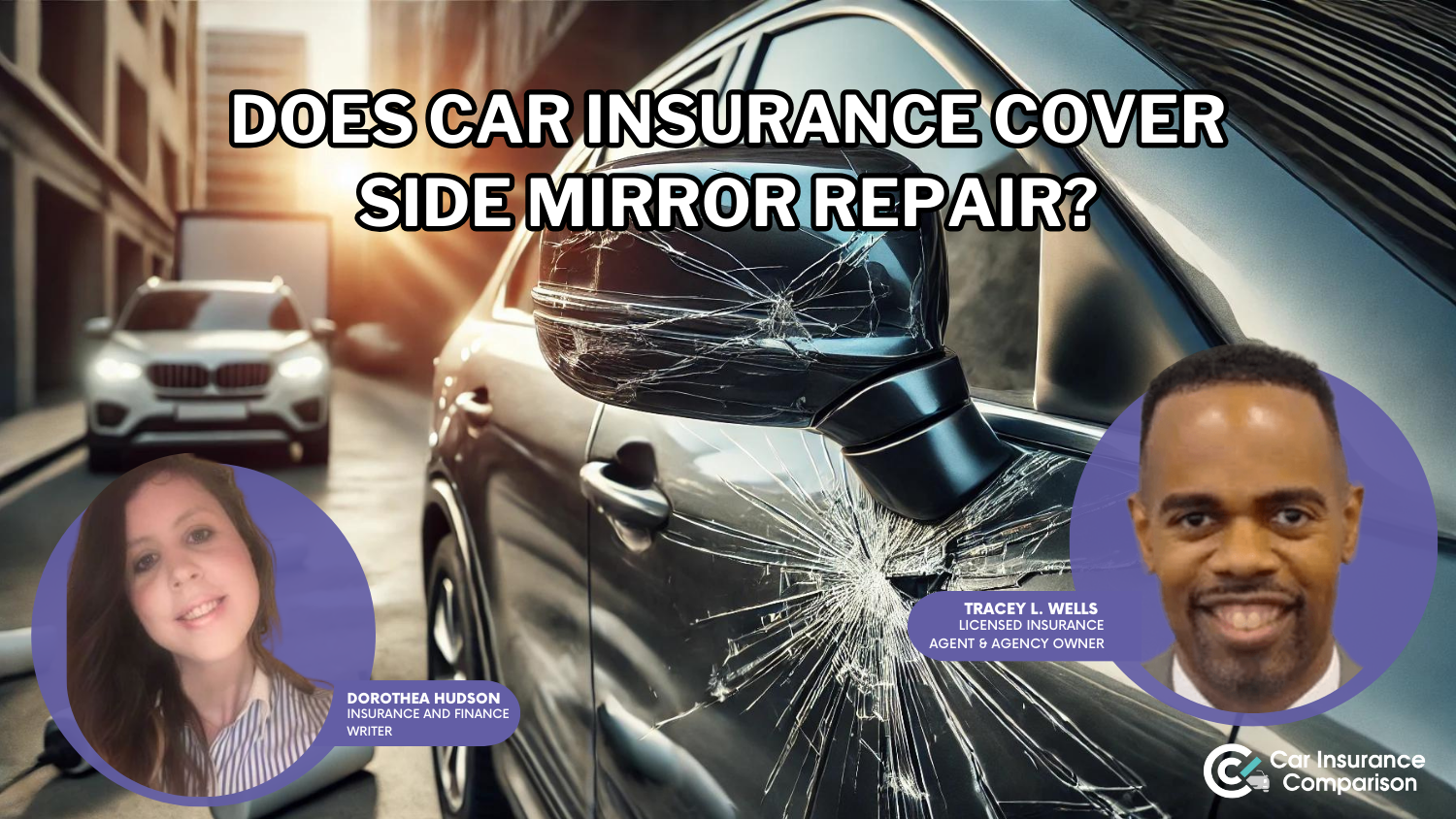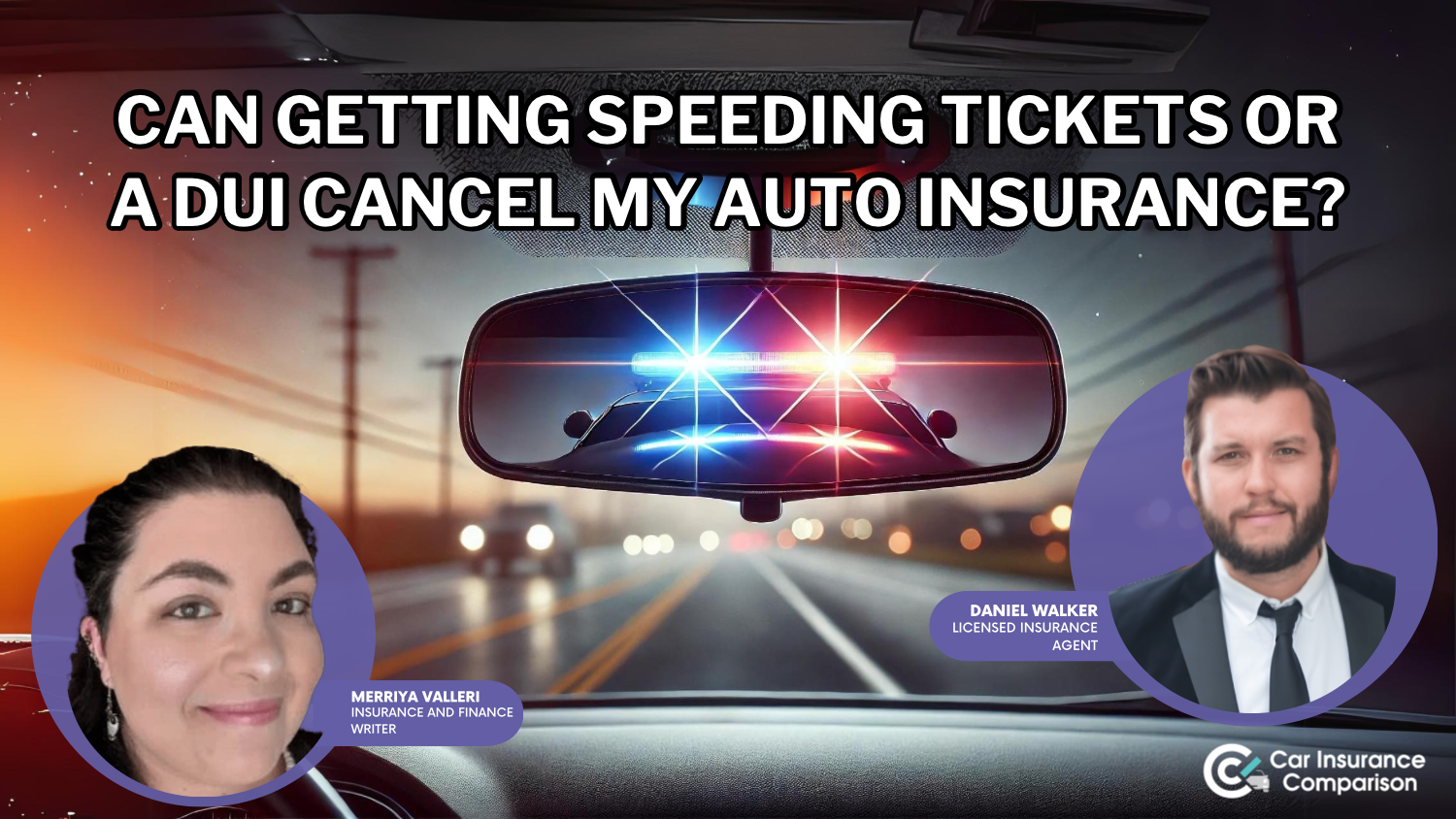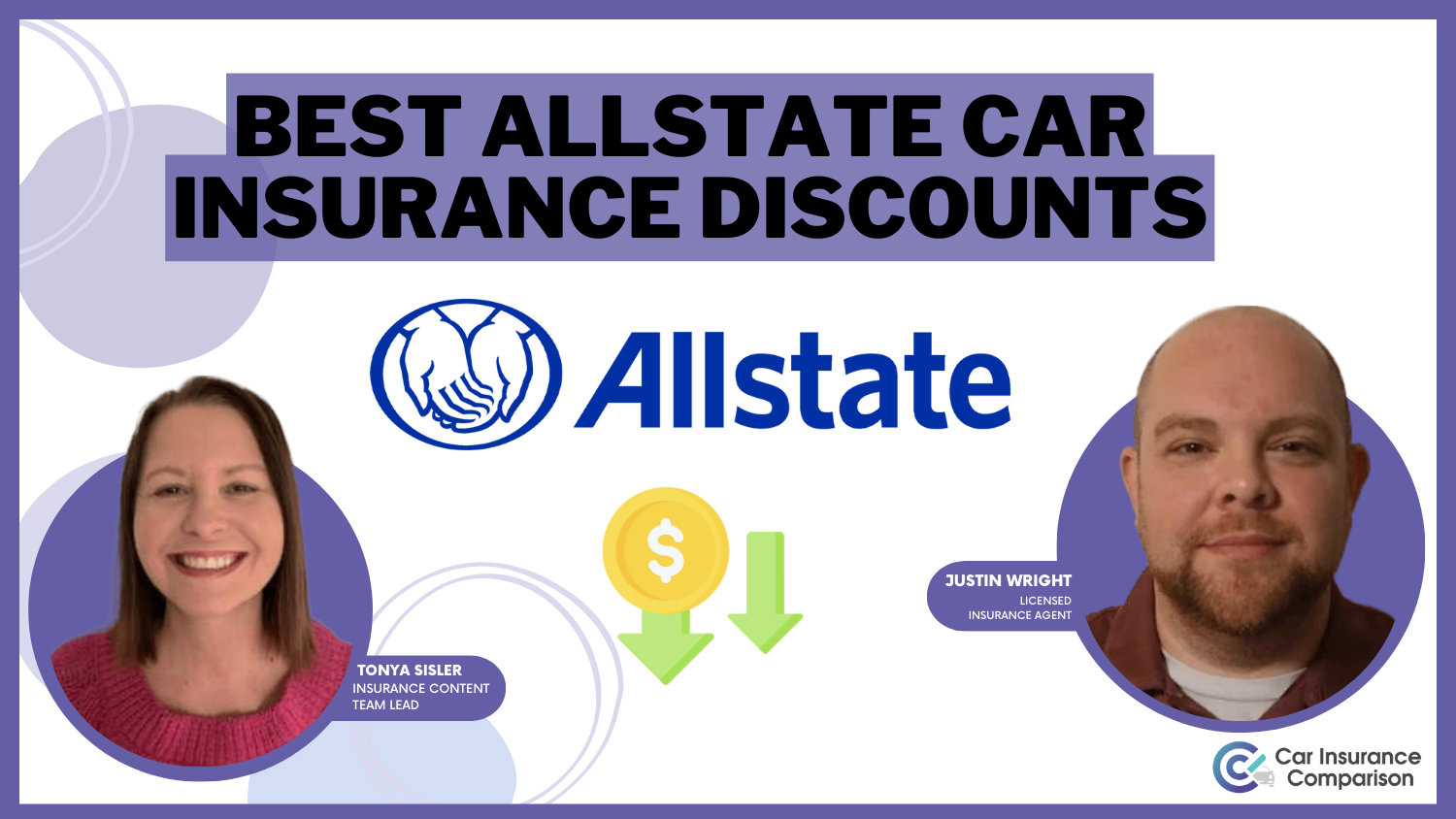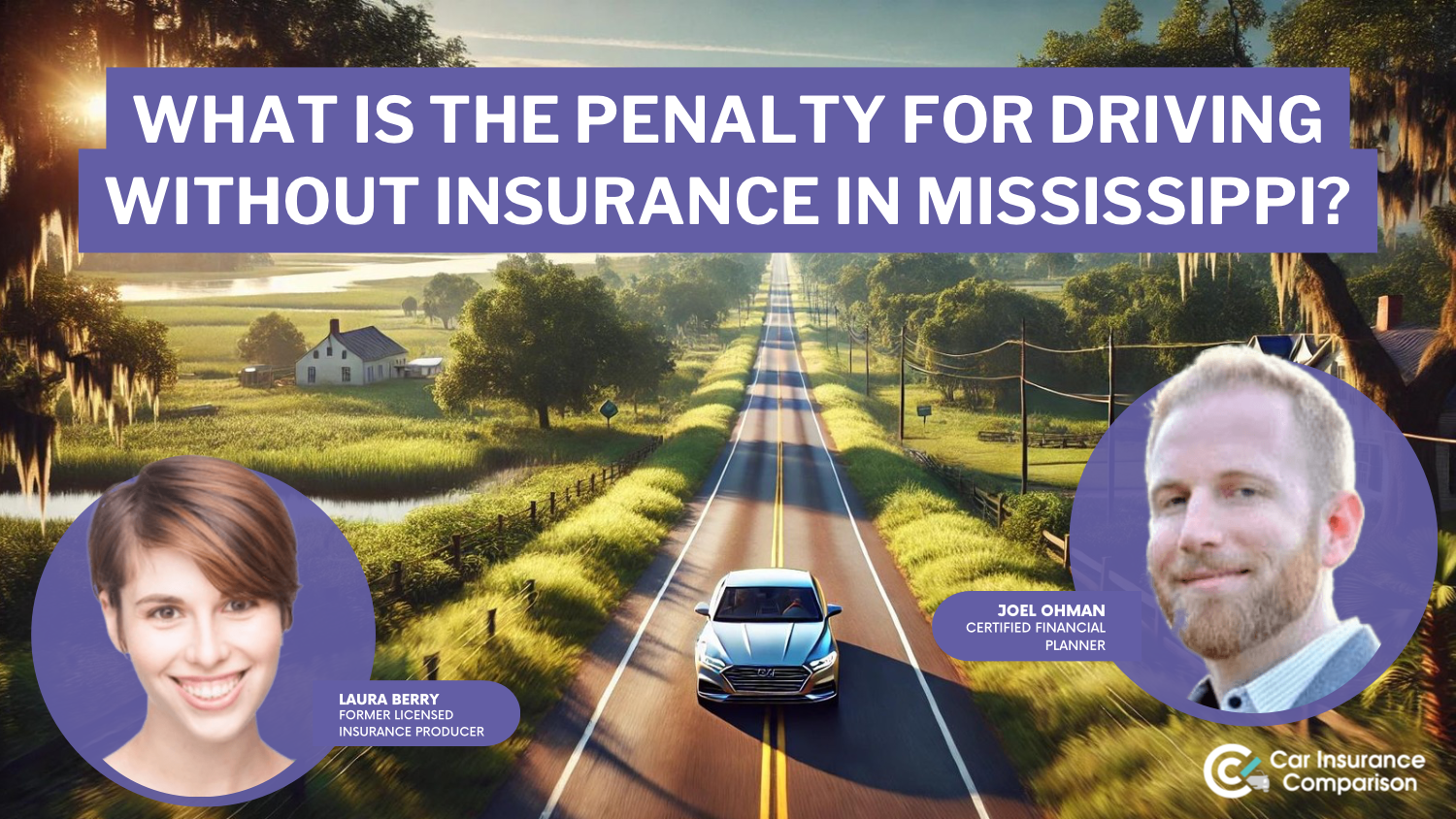How long can I drive my new car without insurance? [Expert Advice]
Drivers should always have insurance that covers new vehicles at the time of purchase. Driving without insurance can be costly, and in most states, against the law.
Secured with SHA-256 Encryption





Table of Contents
Table of Contents


Insurance and Finance Writer
Merriya Valleri is a skilled insurance writer with over a decade of professional writing experience. Merriya has a strong desire to make understanding insurance an easy task while providing readers with accurate and up-to-date information. Merriya has written articles focusing on health, life, and auto insurance. She enjoys working in the insurance field, and is constantly learning in order to ...
Merriya Valleri


Licensed Insurance Agent
Brandon Frady has been a licensed insurance agent and insurance office manager since 2018. He has experience in ventures from retail to finance, working positions from cashier to management, but it wasn’t until Brandon started working in the insurance industry that he truly felt at home in his career. In his day-to-day interactions, he aims to live out his business philosophy in how he treats hi...
Brandon Frady
Updated October 2024
Purchasing a vehicle, whether new or used, is an exciting endeavor. But as the owner of the newly-purchased vehicle, it is your responsibility to ensure you have the right insurance policy before driving it home.
While many drivers are familiar with grace periods when it comes to renewing their registration, there is no grace period for obtaining insurance. Driving any vehicle without insurance, even one you just purchased, could land you with expensive fines and even more expensive auto insurance rates.
Keep reading to learn how long you can drive a new car without insurance and what happens when you’re caught driving uninsured.
- In most states, it is illegal to drive a new car without insurance
- Vehicles that are being financed require physical damage coverage
- There is no grace period for obtaining insurance once you purchase a vehicle.
Is driving a car without insurance legal if I just purchased it?
It doesn’t matter how recently you purchased your vehicle. Once you own a car, it becomes your responsibility to make sure you and any other drivers are covered by insurance before anyone gets behind the wheel.
Not only is it illegal to drive a new car without insurance, but as soon as you drive your new car, you are liable for any damages it may cause.
All states require that every automobile on city and state roads have insurance coverage. However, each state differs in the specific requirements for insurance. Your insurance company will be familiar with those requirements and can offer you a policy that ensures you abide by all state laws.
Read more:
- How long after buying a car do you need to get insurance coverage?
- How long does it take to get car insurance?
- Is it illegal to own a vehicle without insurance?
Free Insurance Comparison
Compare Quotes From Top Companies and Save
Secured with SHA-256 Encryption
How to Get Insurance for a New Car
How you insure your new car depends on whether you already have car insurance. For example, your current policy may provide interim coverage for a new vehicle until you add the car to the policy. Extending coverage to multiple vehicles will raise your insurance rates, but it will be cheaper than opening a new, separate policy.
If you don’t have car insurance, you must purchase a new one to cover your new car. Not all auto insurance policies are alike. For example, you may need to purchase additional coverages depending on whether you are financing your car or not.
Read more: When does car insurance start?
Most auto finance companies require borrowers to have physical damage or collision coverage on top of the state’s liability requirements. In addition, you may also be required to carry GAP insurance. This type of coverage protects the lender from a total loss in case the vehicle is totaled during an accident. (For more information, read our “Can you transfer GAP insurance from one car to another?“).
If you are paying cash for your vehicle, then you are only required to meet your state’s requirements for coverage. However, you may wish to purchase additional coverage if replacing your vehicle would create a financial burden for you.
In all cases, your insurance company will base your insurance on how often you drive your car and if you drive for work or for pleasure. For example, insurance rates for a car you drive daily to work will differ from a car you plan to only drive for pleasure.
Read More:
- Buying Car Insurance for Your New Car
- Do I buy insurance before or after the car?
- How long does it take to get car insurance?
When You Have an Existing Policy With Interim Coverage
If you already have insurance on a vehicle, your existing policy may cover your new vehicle. This could apply if you are trading your current car to a dealership or selling the existing vehicle to a third-party buyer just before purchasing the new vehicle.
Interim coverage only works when you are replacing a vehicle. It does not apply when you plan to keep the vehicle you already own in addition to purchasing a new vehicle.
If you do have interim coverage, it will offer the same level of coverage as the vehicle actually listed on the policy. If you require additional coverage, it is best to do this immediately.
Interim coverage is good for 30 days. During that time you’ll need to contact your insurance company and provide information about the new vehicle.
When You Need To Change Your Existing Policy
If you have auto insurance but plan to keep the car that already has coverage under that policy, you will need to add the new vehicle to your policy. Your current policy will cover your newly purchased auto for 14 days.
If you are financing your new car, but your current policy doesn’t provide full coverage, you will have four days of automatic collision coverage. Within that time, you need to update your policy to meet the requirements set by your lender. Not doing so could result in a lapse in coverage, and driving without insurance can be dangerous as well as expensive.
Read more: When should I drop collision coverage?
Your insurance agent will need some key information from you before adding the new vehicle. This will include the make, model, VIN, and mileage at the time of purchase.
The agent will also need to know whether or not the vehicle is financed, so they can be sure you have acceptable levels of coverage. Adding a vehicle to an existing policy often requires a phone call and coverage can start the same day.
When You Need To Purchase a New Policy
If you don’t own an automobile, you most likely also don’t have a current auto insurance policy. In this situation, you’ll need to find an insurance company to provide you with a policy on the new vehicle.
Just like adding a vehicle to an existing policy, this is a process that you can usually complete over the phone or online. In addition to information about the vehicle, the insurance company will also need personal information about you and your driving history.
What will happen if I drive without insurance?
Driving an uninsured vehicle is always a bad choice. Not only do you need to worry about getting caught by local and state law enforcement, but even worse is if you cause an accident and there is damage and injury.
When you are at fault for causing an accident, you are liable for the costs associated with all damage repairs and medical expenses. Auto insurance protects you from paying for these liability costs out of pocket. Unfortunately, without insurance, you have no other option.
In addition to the monetary expenses, you risk losing your license to drive. You may also have a criminal record if you are convicted, which will raise your auto insurance rates and make it more difficult to find affordable coverage in the future.
Case Studies: Driving a New Car Without Insurance
Case Study 1: Same-Day Insurance Purchase
John purchases a new car and immediately contacts an insurance provider to obtain coverage. He completes the necessary paperwork and pays the premium on the same day of purchasing the vehicle. This proactive approach ensures that John is properly insured and compliant with the law from the moment he starts driving the new car.
Case Study 2: Policy Transfer Timeline
Sarah buys a new car and already has an existing insurance policy for her previous vehicle. She contacts her insurance company within 24 hours of purchasing the new car, providing the necessary details and requesting to transfer her coverage. The insurance company allows a specific timeframe, typically within a few days, to complete the policy transfer and ensure continuous coverage for the new vehicle.
Case Study 3: Grace Period Considerations
Mike purchases a new car and researches the regulations in his state regarding a grace period for obtaining insurance coverage. He discovers that his state allows a grace period of 10 days after purchasing a new car. During this period, Mike contacts insurance providers and secures coverage within the specified timeframe to comply with the state regulations.
Case Study 4: Immediate Insurance Requirement
Samantha buys a new car but overlooks the importance of insurance coverage. She starts driving the vehicle without insurance, assuming that her previous policy will automatically cover the new car.
Unfortunately, Samantha gets into an accident within the first week of purchasing the vehicle and discovers that her previous policy does not extend to the new car. As a result, she faces potential legal and financial consequences.
Free Insurance Comparison
Compare Quotes From Top Companies and Save
Secured with SHA-256 Encryption
Final Thoughts on Driving a Car Without Insurance
Before driving any new or used car, always consider if you have the coverage you need in case you get pulled over for a traffic violation or, even worse, get into a collision. Don’t drive any vehicle that isn’t covered by your insurance policy.
If you aren’t sure if you have coverage on a new vehicle under an existing policy, reach out to your insurance company and read over the policy. It can help to shop around with multiple companies to find an insurer with the policy you need for your new car.
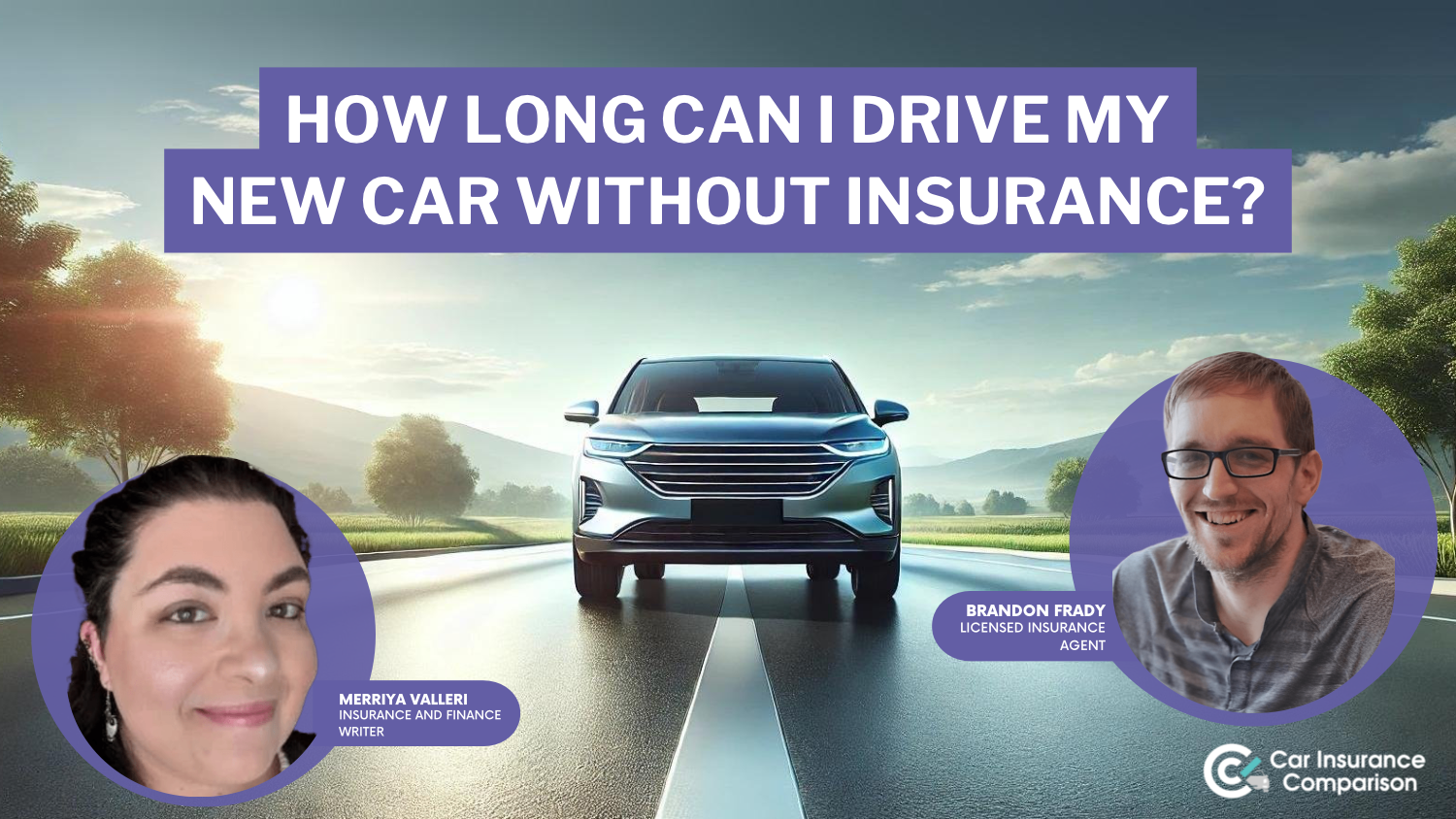
Frequently Asked Questions
How can I ensure I have coverage for a new vehicle under my existing policy?
Contact your insurance company, review your policy, and consider comparing coverage options from different insurers to ensure you have appropriate coverage for your new car.
What should I consider before driving a new car without insurance?
Always ensure you have the necessary insurance coverage before driving any vehicle, as driving uninsured can have serious legal and financial consequences.
What are the risks of driving without insurance?
Driving without insurance can lead to legal consequences, costly expenses in case of an accident, potential license suspension, and difficulty finding affordable coverage in the future.
What should I do if I don’t own an automobile and don’t have an insurance policy?
Find an insurance company and purchase a new policy for your new vehicle, providing the necessary information about the car and your personal details.
How do I change my existing policy to include the new car?
Contact your insurance agent, provide details about the new vehicle, and update your policy to meet the lender’s requirements if you’re financing the car.
What should I do if I already have an insurance policy with interim coverage?
Inform your insurance company about the new vehicle within 30 days, and consider adding any necessary additional coverage.
Get a FREE Quote in Minutes
Insurance rates change constantly — we help you stay ahead by making it easy to compare top options and save.


